CBD and THC are not the only chemical compounds in cannabis that offer therapeutic benefits for those who struggle with chronic pain. CBN is a minor cannabinoid that’s getting more attention for its pain-relieving and anti-inflammatory properties.

Compared to traditional pain medications, which can have a range of side effects, CBN is a well-tolerated, non-addictive substance that can help alleviate pain and improve overall wellness. Whether you deal with chronic pain disorders or inflammatory diseases, CBN could offer you the relief you need.
What is CBN?
Cannabidiol (CBN) is a minor cannabinoid found in the cannabis plant (cannabis sativa, cannabis indica, and cannabis ruderalis). It is formed from the degradation process of tetrahydrocannabinol (THC), which is the most well-known psychoactive cannabinoid in the plant. When THC dries and ages, CBN is formed. Though CBN’s effects are not as well studied as cannabidiol (CBD) and THC, it is still believed to have potential benefits like appetite stimulation, improved sleep, reduced anxiety, and pain and inflammation relief.
Even though it is a byproduct of THC, CBN lacks the psychoactivity of Delta 9 THC.
Our vegan CBN gummies are made with 5 mg of CBN per dose, extracted from high-quality 100% American hemp. Packed with all-natural strawberry flavors, these CBN products are just the thing to calm your racing mind without experiencing psychoactive effects.
What is the Endocannabinoid System?
The endocannabinoid system (ECS) is a cell-signaling system in the body that regulates physiological processes like sleep, mood, learning, memory, concentration, pain regulation, and immune responses. The ECS consists of neurotransmitters and two types of receptors, CB1 and CB2.
CB1 and CB2 Receptors
CB1 receptors are primarily located in the brain and nervous system. These receptors are known for offering pain relief, mood regulation, and appetite stimulation.
CB2 receptors are primarily located in the immune system and other peripheral tissues. These receptors are known for reducing inflammation by decreasing the activation of immune cells that contribute to pain.
Both the CB1 and CB2 receptors are also found in bone tissue to help reduce bone loss and form new bone tissue.
Neurotransmitters
Neurotransmitters are chemical messengers that assist in communication between cells. Anandamide and 2-arachidonoylglycerol (2-AG) are two primary neurotransmitters in this system, and they are known as endocannabinoids, a neurotransmitter subset specifically related to the ECS. These endocannabinoids are produced on demand and travel to receptors to activate them.
Anandamide is informally called the “bliss molecule” because it activates CB1 receptors in the brain to promote happiness and relaxation. This endocannabinoid regulates mood, appetite, pain perception, and neurogenesis in the body. 2-AG activates both CB1 and CB2 receptors. This means 2-AG can play the same role as anandamide for the ECS, but its connection with the CB2 receptors offers added effects. 2-AG binds with CB2 receptors to regulate immune function and inflammation.
Dopamine and serotonin are also neurotransmitters involved in the ECS. CB1 receptors are known to regulate dopamine and serotonin levels, contributing to the treatment of pain, anxiety, and depression. Other, lesser-known, neurotransmitters like glutamate and GABA also play a role in the ECS. Glutamate is closely involved with learning and memory. GABA helps regulate anxiety and mood.
The ECS and Cannabis
The ECS is a crucial component in cannabis use. Endocannabinoids have a similar chemical structure to cannabinoids (including CBN) found in cannabis. Cannabinoids can interact with the CB1 and CB2 receptors just like endocannabinoids do.
How Does CBN Offer Pain Relief?
Research suggests that CBN has pain-relieving and anti-inflammatory properties. CBN binds directly to the CB1 and CB2 receptors in the ECS to subside pain and inflammation and help maintain homeostasis in the body.
CBN for Inflammation
CBN has a high affinity for CB2 receptors, meaning it has strong effects on reducing inflammation and balancing the body’s immune responses. When CBN binds to a CB2 receptor, it regulates the release of cytokines, which are proteins that control inflammation. This makes CBN a potential analgesic treatment for joint pain and inflammatory medical conditions such as multiple sclerosis, rheumatoid arthritis, psoriatic arthritis, and Crohn’s disease.
CBN for ALS
A clinical trial on animals determined that CBN benefits the treatment of health conditions like amyotrophic lateral sclerosis (ALS). The benefits of CBN’s neuroprotective properties could protect brain cells from damage and cell death caused by this neurodegenerative disease. CBN also modulates inflammation and relieves pain caused by ALS.
CBN for Myofascial Pain
A study entitled “Cannabidiol, cannabinol, and their combinations act as peripheral analgesics in a rat model of myofascial pain” concluded that consuming CBN could help people with myofascial pain syndrome. When CBN binds to CB1 receptors, it can decrease the transmission of pain signals. This makes the pain feel less intense and more manageable, especially for those with muscle, joint, and bone discomfort. Studies have shown that cannabinoids could also promote bone cell healing.
CBN for Cancer-Related Pain and Discomfort
People undergoing cancer treatments typically experience significant physical and emotional pain. Intense pain and discomfort often impact mental health and overall well-being. CBN appears to interact to regulate dopamine and serotonin levels, which can reduce one’s perception of pain and calm the body from pain-related stressors.
There is also evidence that CBN is helpful to stimulate the appetite of people who experience weight loss due to chemotherapy. Animal studies offer evidence CBN and other cannabinoids were also effective in inhibiting tumor growth in mice with breast cancer.
CBN for Pain-Related Sleep Issues
People with chronic pain and inflammatory conditions are prone to struggle with sleep. CBN’s potential health benefits also include sedative effects. Using CBN as a sleep aid could be a healthier alternative to prescribed sleeping pills with long-term risks and side effects. Scientific research on the potential benefits of CBN on sleep in an isolated form requires additional information and studies. So far, studies show that taking CBN and other cannabinoids together is the most effective way to improve sleep. Read our guide to dosing CBN for sleep to learn more.
How Do You Take CBN for Pain?
There are many ways you can buy CBN products for pain relief. Deciding which to take is mostly a matter of preference, though your tolerance to certain products and their added ingredients could impact your choice.
Oils and Tinctures
CBN oils and tinctures are liquid extracts people take by placing a droplet under their tongue. Taking CBN sublingually absorbs in the bloodstream in as little as 10 minutes.
Lotions and Creams
People can also buy CBN lotions, balms, and creams to help treat topical pain. These are applied directly to the skin for fast-acting, localized pain relief.
Capsules and Pills
CBN products like capsules and pills are a convenient, taste-free way to relieve pain. Capsules go through a digestive process before reaching the bloodstream. Onset could take anywhere from 30 minutes to two hours.
If you struggle with pain-related sleep issues, try our extra-strength sleep drops. These nano-infused gel capsules are made with natural ingredients and fully organic, terpene-rich hemp extracts.
Edibles
Edible products like gummies and chocolates are the most popular way to consume CBN and other cannabis compounds. Like capsules, edibles could take anywhere from 30 minutes to two hours to feel their effects.
Our collection of vegan CBD gummies are third-party lab tested for quality assurance and are legal in all 50 US states according to the 2018 Farm Bill.
Product QUIZ
Need help deciding what product is best for you? Take our quiz, just three questions until your perfect match!
Dosing CBN
To achieve the health benefits of CBN, you want to start with a low dose (less than 10 mg) and gradually increase it if need be. This will help you avoid any side effects of CBN like dry mouth, dizziness, and nausea that could occur when taking too much.
Is CBN Legal?
After the 2018 Farm Bill created a legal distinction between hemp and marijuana, hemp-derived cannabis products became federally legal. Hemp refers to a cannabis product that has no more than 0.3% THC by dry weight. Marijuana refers to cannabis that has more than 0.3% THC by dry weight and is still considered a controlled substance under federal law.
Is CBN or CBD Better for Pain Relief?
CBD and CBN both offer benefits for pain and inflammation relief. Like CBN, medically reviewed animal studies indicate that CBD benefits myofascial pain. Research also shows that CBD oil benefits people with joint pain and inflammation.
CBD offers health benefits for pain in a slightly different way than CBN because it does not bind directly to the CB1 and CB2 receptors in the body. The benefits of CBD are achieved through a more indirect function, meaning CBD is known to antagonize receptors without making direct contact. But that doesn’t make it any less of a potent substance.
Deciding on CBD vs. CBN depends on the type of pain you’re experiencing, your genetic history, and your current health. People may feel more comfortable using CBD products over CBN because CBD is more well-researched regarding its positive impact on pain. Extensive studies about the antioxidative and anti-inflammatory properties of CBD provide evidence that it is an influential, well-tolerated substance even in high doses.
If you’re unsure about whether CBD or CBN is right for you, consider how taking the two cannabinoids together could be useful. Broad-spectrum CBD products will contain a range of cannabinoids, terpenes, and flavonoids found in cannabis, without the presence of THC.
Try our sleep gummies with a broad-spectrum blend of CBD and 5 mg of CBN in tasty strawberry flavors. We’ve also added 3 mg of melatonin to ensure you fall asleep faster and stay asleep longer. If you’re looking for more high-quality edibles for sleep, check out our melatonin gummies for adults.
Is CBN or THC Better for Pain Relief?
Though THC is most known for its powerful sedative properties and antidepressant effects, it can also relieve pain in similar ways to CBN. Animal studies show that THC and other cannabinoids can suppress pain in several ways, most notably by blocking peripheral nerve pain. A medical review noted that THC could relieve neuropathic and arthritic pain. Like CBN, THC reduces inflammation by reducing cytokine production in the body. THC’s interactions with dopamine are known to stimulate the release of this neurotransmitter to alter pain perception and regulate mood.
THC also binds directly to the CB1 and CB2 receptors in the ECS. When THC interacts with the CB1 receptors in the brain and central nervous system, altered perception and impaired coordination could occur. The intensity of this effect makes THC the major psychoactive cannabinoid in cannabis.
That’s why people choose to microdose THC. This is a practice of taking ultra-low doses of THC so you can reap the benefits of the cannabinoid without feeling high. Just 5 mg of THC could offer mild euphoria but will not cross a threshold of feeling cognitively impaired or intoxicated.
If you’re thinking about microdosing THC for pain, you’ve got to check out our collection of Delta 9 THC edibles. All of our Delta 9 THC products contain THC in low doses and are made with 100% federally legal hemp.
Research suggests that taking THC, CBN, and other cannabinoids together is the best way to achieve pain relief. This whole-plant medicinal concept is known as the entourage effect, a theory that cannabis compounds work together synergistically to offer enhanced benefits.
One can achieve the benefits of the entourage effect by taking a full-spectrum CBD product that includes CBD and THC along with other cannabinoids (like CBN), terpenes, and flavonoids. Taking CBD and THC together is also useful because CBD is known to downregulate THC, making it a more tolerable substance for users.
Shop our full-spectrum CBD gummies for high-quality edible hemp products. Whether getting an uplifting boost for your day with our Energy Delta 9 THC gummies or getting comfy on the couch in the evening with our Relax Plus gummies, our gluten-free, non-GMO edibles ensure you reliable dosing and full transparency about our quality ingredients.
FAQ about CBN for Pain Relief
Taking CBN could cause a failed drug test. CBN products could contain trace amounts of THC, which is the cannabinoid responsible for possible impairment when using cannabis. If you’re actively using CBN and are going to take a drug test, THC metabolites could show up in your test.
CBN could potentially relieve muscle tightness. Animal studies found that CBN, other cannabis compounds, and their combinations act as peripheral analgesics for people with myofascial pain syndrome (MPS). Muscle pain and tightness are common for people with MPS, making CBN a possible option for relief.
Hemp seed oil will not typically have CBN in it. CBN is a cannabinoid extracted from the leaves, flowers, and stalks of the plant. However, hemp seed oil is extracted solely from the seed. This type of cannabis oil contains lots of essential nutrients and unsaturated fatty acids, but generally no cannabinoids.
CBN isn’t an FDA-approved substance. Though CBN is considered federally legal as long as it contains no more than 0.3% THC by dry weight, the FDA has not approved it as an active ingredient to treat medical conditions.
The potential side effects of CBN are mild and generally uncommon. Some negative side effects of CBN could include dry mouth, dizziness, fatigue, and nausea. These symptoms are not known to last long and are not life-threatening.
One study suggests that CBN and other cannabinoids could potentially promote the development of new neurons. However, more research needs to be done before offering a definite answer about whether CBN could promote the growth of stem cells.
Though CBN and CBD are both cannabinoids, the two interact with the body differently. CBN is a minor cannabinoid produced from the oxidation of THC and binds directly to the receptors in the ECS. CBN is a major cannabinoid in cannabis that indirectly interacts with the receptors in the ECS. Both cannabinoids are known to offer pain relief, improve sleep, and stimulate appetite.
Each cannabinoid has its own unique properties that offer potential benefits. Though THC and CBD are more well-researched than CBN, all three cannabis compounds are beneficial in some way. Choosing which is best for you depends on your specific needs and preferences. No matter which cannabinoid you choose, start with a low-and-slow approach. Choose low doses of the product and slowly increase over time as needed.
There is research to show that cannabinoids have potential therapeutic effects on people with mood-related disorders like bipolar disorder. However, there is limited research on the specific effects of CBN on bipolar disorder and other mood-related issues.
CBN could reduce the risk of heart disease because of its anti-inflammatory properties. These properties may help CBN protect the heart against damage caused by inflammation and oxidative stress.
Top Sellers
New? Start with our Ultimate Sampler!

THC: 10 mg | CBC: 10 mg | CBD: 10 mg | CBG: 5 mg | CBN 5mg
Citations:
- Endocannabinoid system dysfunction in mood and related disorders - PubMed. (2011, October 1). PubMed. https://doi.org/10.1111/j.1600-0447.2011.01687.x
- Rodrigues, R. S., Lourenço, D. M., Paulo, S. L., Mateus, J. M., Ferreira, M. F., Mouro, F. M., Moreira, J. B., Ribeiro, F. F., Sebastião, A. M., & Xapelli, S. (2019, April 5). Cannabinoid Actions on Neural Stem Cells: Implications for Pathophysiology. PubMed Central (PMC). https://doi.org/10.3390/molecules24071350
- Medical Marijuana for Treatment of Chronic Pain and Other Medical and Psychiatric Problems: A Clinical Review - PubMed. (2015, June 1). PubMed. https://doi.org/10.1001/jama.2015.6199
- Mack, A., & Joy, J. (2000, January 1). MARIJUANA AND PAIN - Marijuana as Medicine? - NCBI Bookshelf. MARIJUANA AND PAIN - Marijuana as Medicine? - NCBI Bookshelf. https://www.ncbi.nlm.nih.gov/books/NBK224384/#:~:text=Peripheral%20nerves%20that%20detect%20pain,suppress%20pain%20through%20different%20mechanisms.
- Atalay, S., Jarocka-Karpowicz, I., & Skrzydlewska, E. (2019, December 25). Antioxidative and Anti-Inflammatory Properties of Cannabidiol. PubMed Central (PMC). https://doi.org/10.3390/antiox9010021
- CBD for the treatment of pain: What is the evidence? (2020, July 4). CBD For the Treatment of Pain: What Is the Evidence? - ScienceDirect. https://doi.org/10.1016/j.japh.2020.06.009
- Cannabidiol has therapeutic potential for myofascial pain in female and male parkinsonian rats - PubMed. (2021, September 15). PubMed. https://doi.org/10.1016/j.neuropharm.2021.108700
- Farm Bill. (n.d.). Farm Bill | USDA. https://www.usda.gov/farmbill
- Cannabinol and Sleep: Separating Fact from Fiction - PubMed. (2021, October 1). PubMed. https://doi.org/10.1089/can.2021.0006
- Almeida, C. F., Teixeira, N., Correia-da-Silva, G., & Amaral, C. (2021, December 28). Cannabinoids in Breast Cancer: Differential Susceptibility According to Subtype. PubMed Central (PMC). https://doi.org/10.3390/molecules27010156
- Cannabinol and cannabidiol exert opposing effects on rat feeding patterns - PubMed. (2012, September 1). PubMed. https://doi.org/10.1007/s00213-012-2697-x
- The Cannabinoids Effect on Bone Formation and Bone Healing - PubMed. (2020, October 1). PubMed. https://doi.org/10.1007/s11914-020-00607-1
- Cannabidiol, cannabinol and their combinations act as peripheral analgesics in a rat model of myofascial pain - PubMed. (2019, August 1). PubMed. https://doi.org/10.1016/j.archoralbio.2019.05.028
- Cannabidiol, cannabinol and their combinations act as peripheral analgesics in a rat model of myofascial pain - PubMed. (2019, August 1). PubMed. https://doi.org/10.1016/j.archoralbio.2019.05.028
- Anthony, A. T., Rahmat, S., Sangle, P., Sandhu, O., & Khan, S. (2020, September 14). Cannabinoid Receptors and Their Relationship With Chronic Pain: A Narrative Review. PubMed Central (PMC). https://doi.org/10.7759/cureus.10436
nama CBD FDA & Legal Disclaimer
This article is for informational purposes only, and does not constitute medical advice. Our products are not intended to diagnose, treat, cure, or prevent any disease. They are not a replacement for prescription medications and have not been evaluated by the Food and Drug Administration (FDA).
The information provided on this website does not, and is not intended to, constitute legal advice or any statements of the status of any laws. Any information, content, and materials available on this site are for general informational purposes only, and are not intended to be relied upon for any purpose.
Readers of this website should contact their attorney to obtain advice with respect to any particular legal matter including decisions on what products are, or are not, legal to sell, possess, or consume. No reader, user, or browser of this site should act or refrain from acting on the basis of information on this site without first seeking legal advice from their own counsel in the relevant jurisdiction.
Only your individual attorney can provide assurances that the information contained herein – and your interpretation of it – is applicable or accurate for your particular situation. Use of, and access to, this website or any of the links or resources contained within the site do not create an attorney-client relationship between the reader, user, or browser, and website authors, contributors, contributing law firms, or committee members and their respective employers.
More From the nama Family
Small batch edibles crafted for different times of the day and experiences.
About
Learn
Join us on this journey

© Copyright 2026 nama Products LLC. All Rights Reserved.
†These statements have not been evaluated by the Food and Drug Administration. These products are not intended to diagnose, treat, cure or prevent any disease. All information presented here is not meant as a substitute for or alternative to information from health care practitioners. Please consult your health care professional about potential interactions or other possible complications before using any product.
††The information provided on this website does not, and is not intended to, constitute legal advice or any statements of the status of any laws. Any information, content, and materials available on this site are for general entertainment purposes only, and are not intended to be relied upon for any purpose.

By clicking ‘Yes,’ you agree to our
Terms & Conditions and Privacy Policy
123 John Doe Street
Your Town, YT 12345
Store Hours
Sun: Closed
Mon-Fri: 9:00 - 17:00
Sat: 10:00 - 13:00
What to expect at pickup
Closed
Closing at 5pm
Closing at 5pm
Closing at 5pm
Closing at 5pm
Closing at 5pm
Closing at 1pm





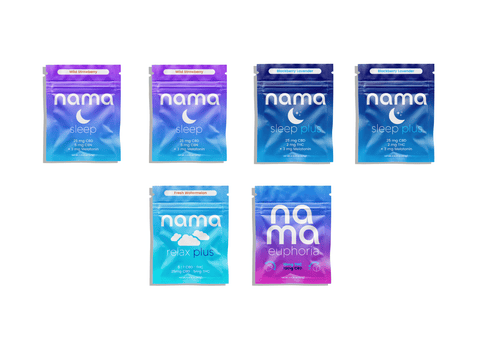
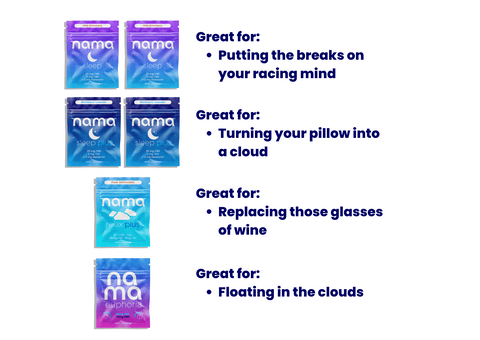
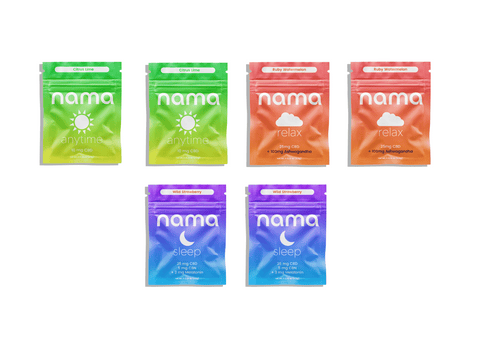
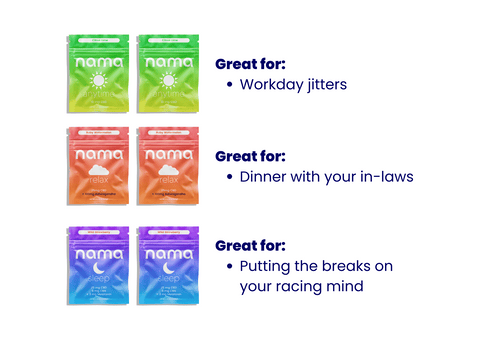
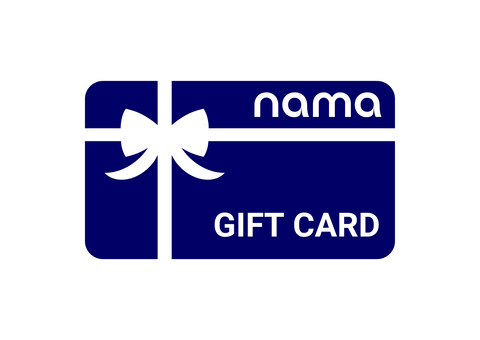







![Buzz Packs™ [THC and CBD Powder Drink Mix]](http://www.namacbd.com/cdn/shop/files/nama_buzz_packs_thc_drink_pack_white_background.png?v=1741884660&width=480)
![Buzz Packs™ [THC and CBD Powder Drink Mix]](http://www.namacbd.com/cdn/shop/files/Buzz_Packs_Label.png?v=1741884660&width=480)
![Buzz Drops™ [THC Drink Drops]](http://www.namacbd.com/cdn/shop/files/nama_thc_buzz_drops.png?v=1711412866&width=480)
![Buzz Drops™ [THC Drink Drops]](http://www.namacbd.com/cdn/shop/files/buzz-drop-wine-comparison.png?v=1736882023&width=480)
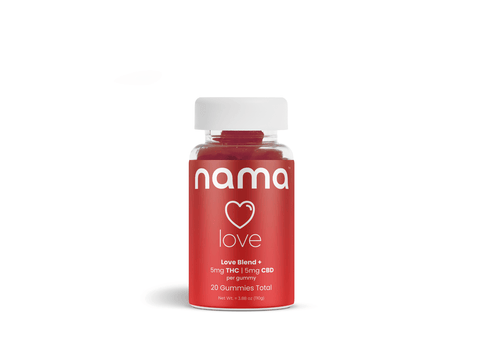
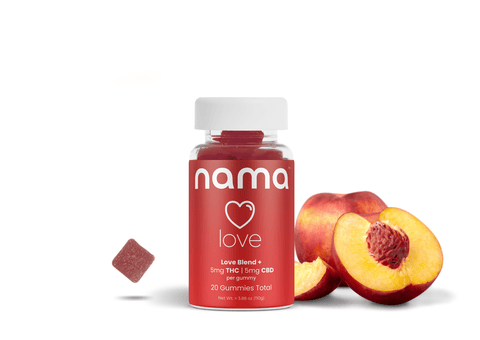
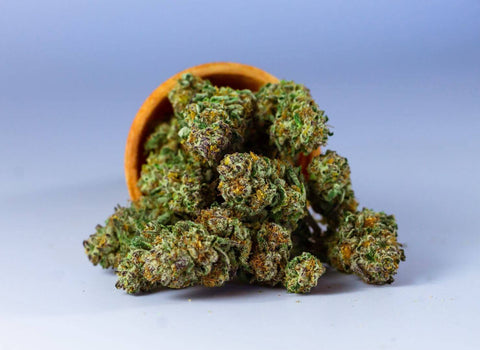
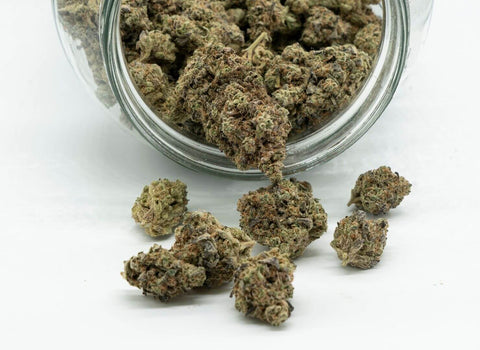

Comments (0)
There are no comments for this article. Be the first one to leave a message!